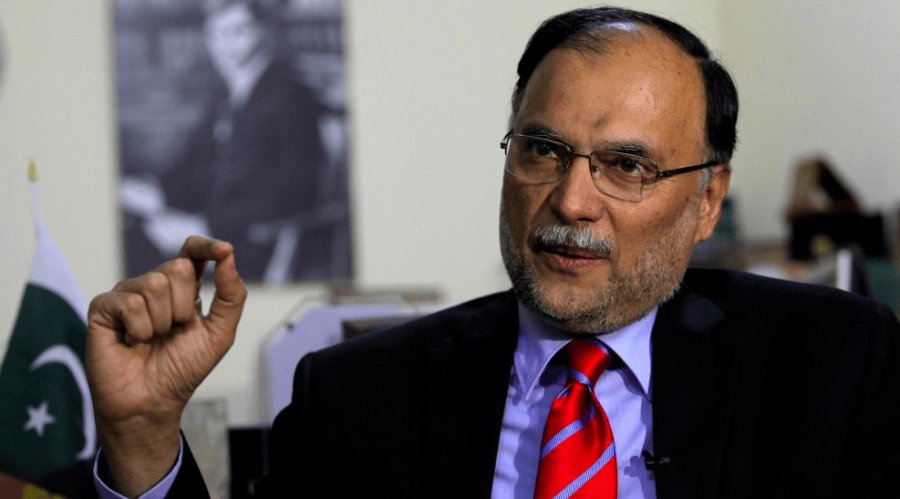Federal Minister for Planning, Development and Special Initiatives, Professor Ahsan Iqbal here on Tuesday reiterated that political stability and continuation of policies were prerequisites to lead the country towards stability and development.
Addressing a press conference after assuming the charge of minister, he lamented that political instability and discontinuation of policies had always inflicted the country and blocked the way towards sustainable progress and development.
Citing examples of various countries including India, Turkey, China, Bangladesh, and Korea, the minister said no country had achieved success without consistent policies and political stability.
He said, the last 50 year political history of Pakistan had a negative impact on the implementation and progress of development projects like Vision 2010, Vision 2025, and other five-year plans.
He underlined the importance of making comprehensive decisions and planning for the continued success adding it was imperative to focus on creating an entrepreneurial ecosystem aimed at job creation and youth development.
He said, the planning should be made keeping in view the modern infrastructure as digital technology was having great influence on different sectors in the era we were living in.
He stressed the need for modern infrastructure development over the next decade to lay the foundation for a prosperous future.
Highlighting the urgency of integrating technology into various sectors, he underscored the government’s commitment to bringing advancement in agriculture, industry and production processes.
Addressing the future of the China-Pakistan Economic Corridor (CPEC), Ahsan Iqbal announced the implementation of five new corridors in the CPEC phase-2 included Corridor of Growth, Corridor of Job Creation, Corridor of Innovation, Corridor of Green Energy, and Corridor of Inclusive Regional Development, were set to usher in a new era of economic prosperity and cooperation.
The minister said that the government was determined to work honestly on the CPEC Phase-2 as was done in case of CPEC Phase one where in $25 billion investments were made from 2013 to 2018.—APP










